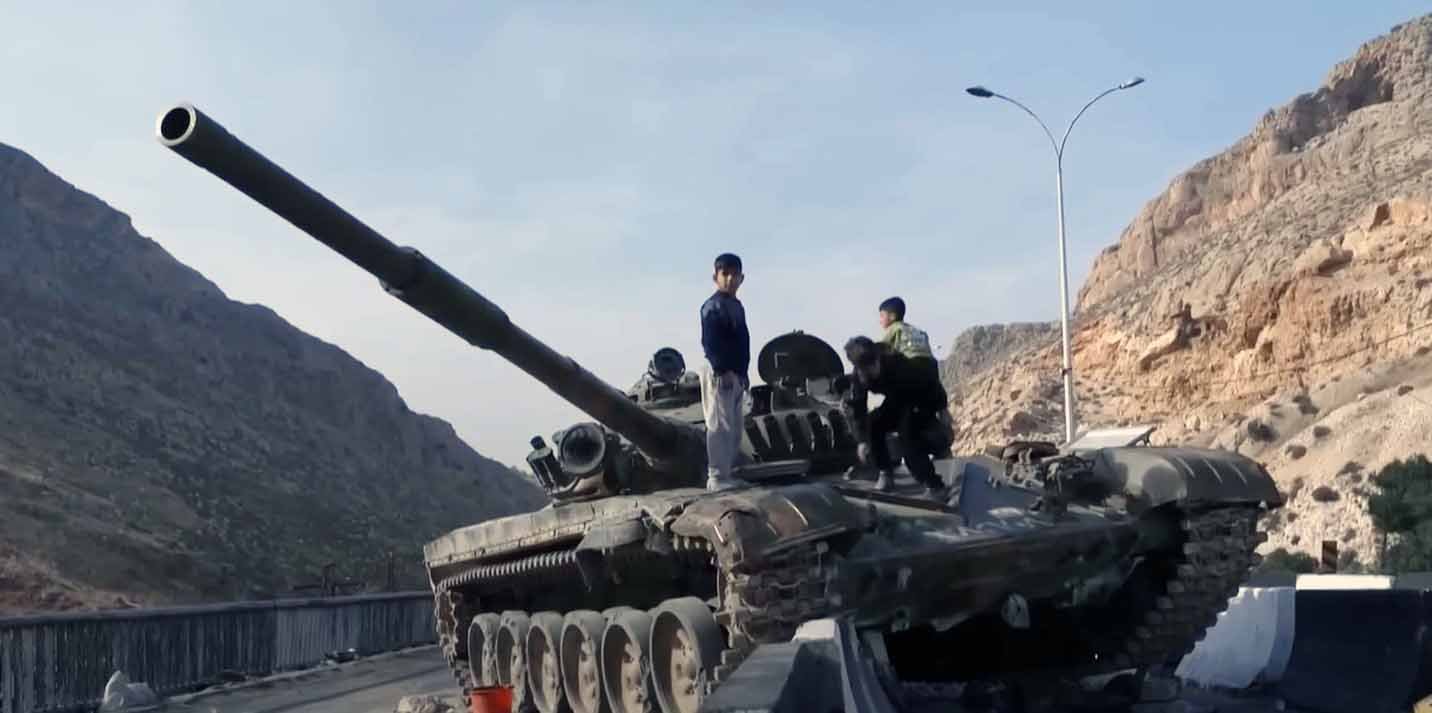Leader of the rebel group Hayat Tahrir al-Sham (HTS), Ahmed al-Sharaa, commonly known as Abu Mohammad al-Julani, has announced notable changes in northern Syria’s governance plans for under his authority. Al-Sharaa underlined in a well-publicized interview the breakup of forces connected to the fallen Assad government and the closing of prisons infamous for violations of human rights. Following HTS’s broad advances—including the takeover of important cities like Aleppo and Hama—this statement marks a turning point in the Syrian civil war.
Vision for Governance and Justice
Declaring, “Our aim is to create a system based on justice, where human rights are respected, where no one lives under oppression,” Al-Sharaa presented his vision for a democratic and responsible government. This action contrasts sharply with the authoritarian systems of the Assad regime by establishing elected councils to reflect local residents. He underlined even more the urgency of addressing complaints resulting from more than ten years of conflict, which has uprooted millions of people and left many Syrians hopeless.
The choice to destroy the forces of the Assad government shows a more general intention to eradicate traces of their rule in freed territories. This covers the closing of prisons noted by international human rights organizations as places of extrajudicial murders and torture. According to *Human Rights Watch*, over 100,000 people have gone missing in Syria’s jail facilities since the crisis began.
Global and Regional Stakes
The announcement has generated diverse reactions abroad. The United States, while cautiously supportive of efforts to transition from Assad’s regime, has expressed worries about HTS because to its historical affiliations with al-Qaeda. European nations shared similar worries but supported any effort to develop a governance framework promoting accountability and human rights.
In contrast, Russia and Iran, Assad’s key backers, blasted the decision, characterizing it an attempt to destabilize Syria further. A Kremlin spokeswoman claimed, “Such plans undermine Syria’s sovereignty and are an act of aggression against the legitimate government.” Turkey, which has strategic interests in Syria’s northern territories, is keenly observing the events. Analysts argue that Ankara might exploit its influence to modify the governance model to coincide with its regional interests.
Domestic Reactions and Challenges
On the ground, Syrians have voiced a combination of hope and mistrust. For many who suffered under the Assad dictatorship, the potential demolition of oppressive structures is a welcome shift. Local activist Samira Ahmad from Aleppo offered her cautious hope, adding, “If the promises translate into actions, this could be the beginning of healing for Syria. But we need clarity and commitment, not just words.”
However, detractors claim that HTS’s past record raises issues about its ability to govern inclusively. Despite distancing itself from extremist associations in 2017, HTS remains a contentious force, and some fear the group could impose tight governance once fully in power.
Broader Implications
Al-Sharaa’s recent steps to rebrand his leadership, including using his true name for the first time publicly, imply an effort to win greater recognition both domestically and abroad. This development aligns with persistent calls for foreign powers, including the U.S., Russia, and Iran, to lessen their engagement in Syria.
Observers stress that these shifts could dramatically alter the geopolitical environment in the Middle East. For instance, the removal of foreign troops—a aim for HTS—might rebalance alliances and disrupt power balances, particularly as global powers like the United States reconsider their military commitment in Syria under new circumstances.
Path Forward
As the struggle enters a new phase, al-Sharaa’s leadership faces a daunting challenge: to shift from a militant movement to a respectable governing authority. Whether the group can achieve its promises of justice and democracy will ultimately decide its acceptance by the Syrian people and the international community.
Sources
- CNN: Coverage of Ahmed al-Sharaa’s statements on restructuring governance in Syria.
- Human Rights Watch: Reports on the state of detention facilities under the Assad regime.
- EADaily: Analysis of the geopolitical implications of the rebel advances in Syria.

